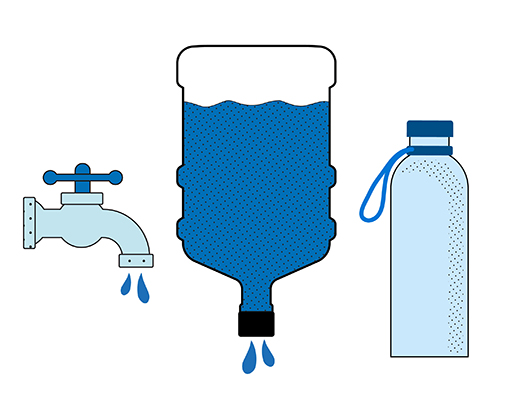3.2 Hydration: drinking plenty of water
Keeping your fluid levels topped up is really important, whatever your age. The amount of water you drink every day can have a big impact on your health.
Good hydration keeps your energy levels up. If you don’t drink enough, your metabolic rate slows down and could start making you feel dizzy or lethargic. If you’re taking medication, dehydration can also slow the effects of this. For example, if you take a paracetamol for a headache but are a bit dehydrated, you might need to wait longer for it to work. It’ll take longer for your body to process it too, so you’re more at risk of the toxins building up in your body if you’re taking medication frequently.
How much water should you be drinking? Ideally two litres of water, or six to eight cups, every day. Fill a bottle up and take it with you so you can take regular sips. Coffee, tea or alcohol don’t count! They actually dehydrate you and can have a diuretic effect. That is, they make you visit the toilet more often and lose more fluids. And try to avoid drinking sugary drinks too often.
As we get older the body is less sensitive to feeling thirsty, so make sure you keep topping up your fluids. Try refilling your glass from a bottle or jug of water rather than the tap. That’ll help you keep track of how much water you’ve had throughout the day.

